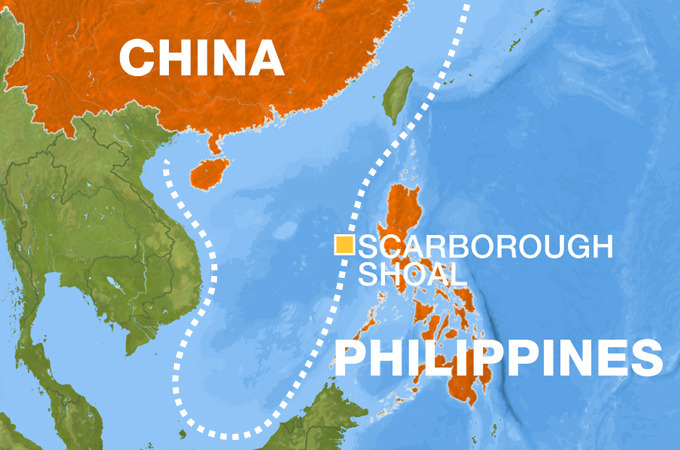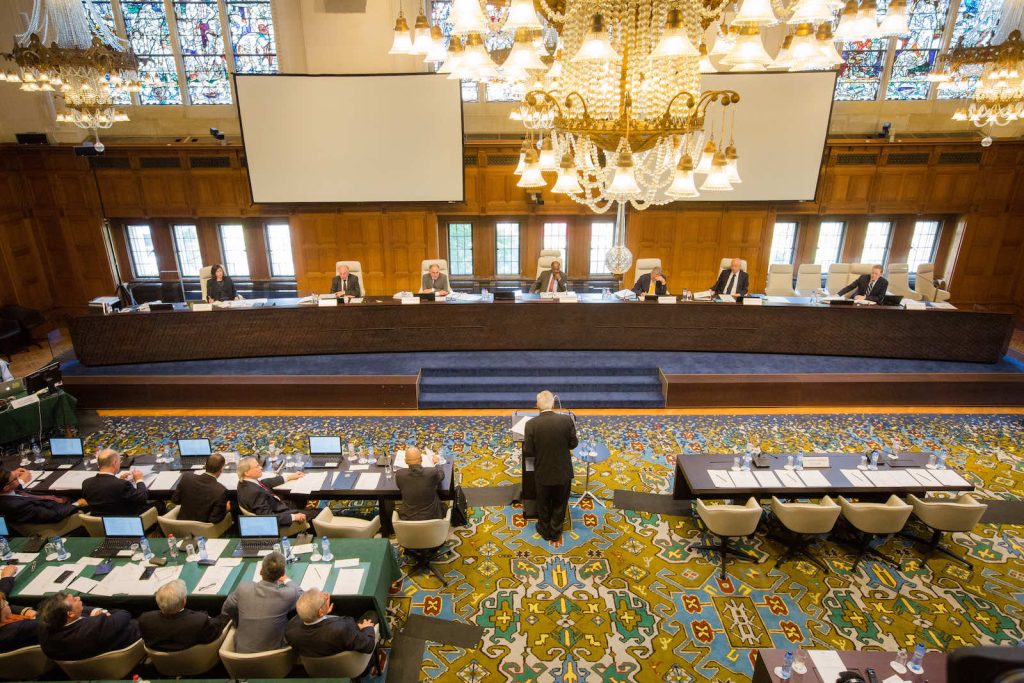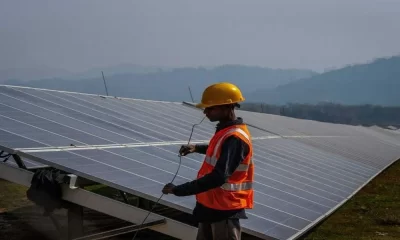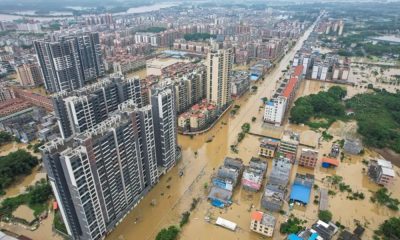News
Philippines Calls on China to Submit South China Sea Claims to International Arbitration
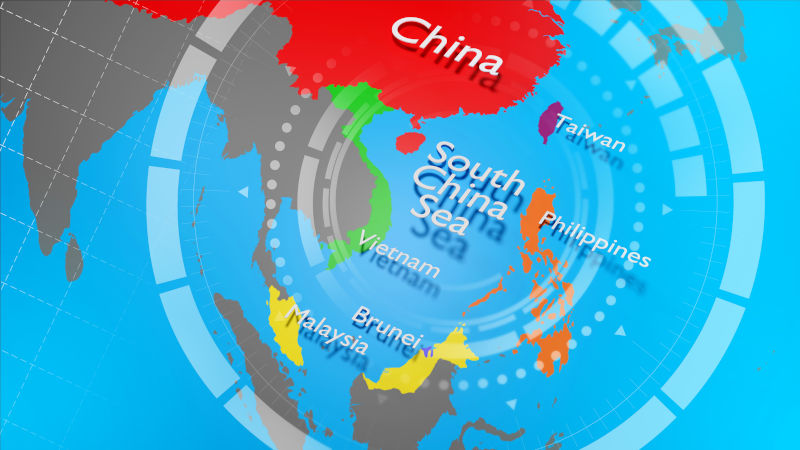
In the wake of yet another deadlock over the weekend, the defense minister of the Philippines called on China to submit its sovereignty claims in the South China Sea to international arbitration on Monday.
In response to what it called “aggressive actions” by the Chinese coastguard, the Philippine foreign ministry summoned the Charge d’affaires and told its Beijing mission to formally complain with the foreign ministry in Beijing.
In a statement, the ministry criticized China for its actions last week, calling them “unacceptable” and stating that China has no business being in the South China Sea’s Second Thomas Shoal. China claims it took the appropriate steps in response to the Philippines’ alleged invasion.
The latest incident in a series of confrontations that have occurred in the previous year occurred when the Philippines accused the Chinese coastguard of deploying water cannons against a civilian boat that was delivering supplies to troops stationed aboard a grounded warship at the contested Second Thomas Shoal. The attack damaged the resupply boat and injured several of the crew members.
“Why don’t we arbitrate under international law? If China is not afraid to state its claims to the world,” Philippine Defense Secretary Gilberto Teodoro told reporters.
The Chinese coast guard claimed it attacked the Philippine ships by whatever means were required. The Chinese defense ministry sent a warning to the Philippines on Sunday, urging them to stop making statements and taking “provocative actions” that could escalate tensions.
To discuss the incident and formulate suggestions for President Ferdinand Marcos Jr. to consider moving further with the conflict, the national security adviser of the Philippines called a conference of senior security officials on Monday.
Even though it lies inside the Philippines’ 200-mile (320-km) EEZ, China asserts sovereignty over nearly the whole South China Sea, including Second Thomas Shoal.
In spite of the Permanent Court of Arbitration’s 2016 ruling that Beijing’s expansive claim lacked legal standing, the Chinese capital has nevertheless sent hundreds of coastguard vessels to police the South China Sea, which it claims as its own.
“They are the ones who entered our territory,” stated Teodoro, the Philippine Secretar of Defense.
“No country believes (their claims) and they see this as their way to use force, intimidate and bend the Philippines to their ambitions.”
The South China Sea Territorial Conflicts
China has provoked hostility among rival claimants in Brunei, Indonesia, Malaysia, the Philippines, Taiwan, and Vietnam with its expansive assertions of sovereignty over the sea, which is believed to contain eleven billion barrels of undiscovered oil and one hundred and twenty trillion cubic feet of natural gas.
Several nations have staked claims to islands and regions in the South China Sea, including the Spratly Islands, which are home to abundant fisheries and natural resources, since the 1970s.
If the leaders of China and Southeast Asia are unable to resolve their differences diplomatically, it could lead to a weakening of international regulations that regulate maritime conflicts and potentially promote the development of unstable weapon stockpiles.
China argues that its exclusive economic zone (EEZ) is off-limits to foreign forces conducting reconnaissance flights or other intelligence-gathering operations due to international law.
The United States maintains that the United Nations Convention on the Law of the Sea (UNCLOS) mandates that claimant nations be exempt from notifying other claimant nations of military operations and should have unfettered navigation across their exclusive economic zones (EEZs) at sea.
The Permanent Court of Arbitration at The Hague issued a verdict in favor of the Philippines on nearly all counts in a UNCLOS dispute against China. China has refused to recognize the tribunal’s jurisdiction, despite being a party to the treaty that created it.
Recent satellite images have revealed China’s stepped-up attempts to physically expand existing islands or construct new ones in the South China Sea in a bid to recover territory there.
China has built airstrips, ports, and military bases, mostly in the Paracel and Spratly Islands, where it has twenty outposts and seven outposts, respectively, in addition to shoring up preexisting reefs. China has sent fighter planes, cruise missiles, and a radar system to Woody Island, turning it into a military base.
The US is in favor of a binding code of conduct and other confidence-building measures since it has significant interests in protecting maritime lines of communication (SLOCs) and facilitating free navigation.
The sea lanes of communication (SLOCs) are vital for commerce and the deployment of naval troops, but they are now under danger from Chinese claims.
By conducting freedom of navigation operations and strengthening assistance for Southeast Asian partners, the United States has contested China’s aggressive territorial claims and land reclamation projects in the region, in order to safeguard its political, security, and economic interests.
The U.S.-Malaysia military treaty raises the prospect of American involvement in a fight between China and the Philippines over rich fishing grounds or huge natural gas reserves in contested land.
Additionally, Japan has sold military vessels and equipment to Vietnam and the Philippines in an effort to counter China’s aggressive behavior in the contested area and strengthen their ability to protect their maritime borders.
Upcoming Changes
Despite China’s heightened military activity in the South China Sea, which included a series of naval maneuvers and exercises in March and April 2018, tensions with the Philippines and Vietnam have lately cooled.
As this is going on, China is using the man-made islands it has constructed in territorial waters to establish military and industrial outposts.
Police Seizes 2 Tons of Crystal Meth Destine for Philippines and Australia
Police Seizes 2 Tons of Crystal Meth Destine for Philippines and Australia

